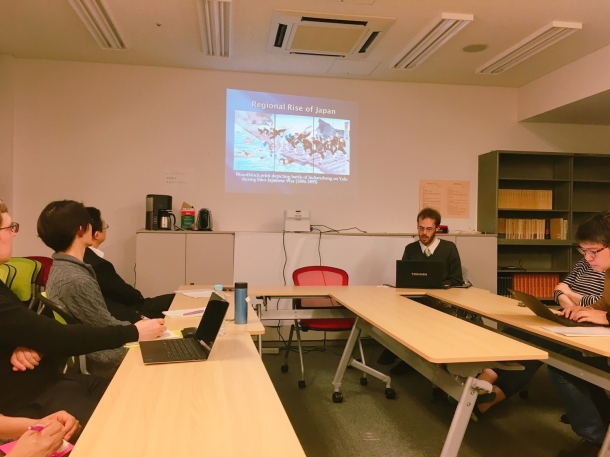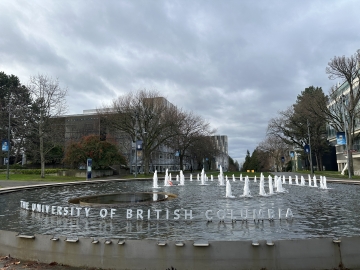On April 5th, 2018, Waseda University’s Global Asia Studies Research Center hosted an international workshop, “Seasons of Danger: Smuggling, ‘Banditry and Border Policy along the Yalu River between Northern Korea and China, 1931-1945.” Joseph Seeley, a PhD student from Stanford University, delivered a research presentation on border control of the Yalu River carried out by the Japanese colonial government during the period from 1931 to 1945. Mr. Seeley’s research interests focused on Japanese colonialism in East Asia before World War II. From a disciplinary perspective, his research couples geopolitical history with environmental history to examine the liquid border of the Yalu River flowing between China and Korea. In fact, the border of the Yalu River still grabs the attention of the world today due to the complicated geopolitical situation in East Asia.
The key concepts of this lecture were categorized as “liquid geography, sedentarization, and seasonality.” The presenter explained how people in the border area used the liquidity of the river and how the river affected people’s migration according to seasonality and climate. He further elucidated the history of border security with the transnational disputes along the Yalu River during the Japanese occupation of the Korean Peninsula and the period of the Manchukuo puppet state.
In the early part of his lecture, Mr. Seeley elaborated on how the Japanese border policy was implemented and how Japanese security forces dealt with the smugglers who appeared around the border of the Yalu River. He interconnected the climate and history with human life and activities around the border. By identifying the political, economic, and environmental history compiled with the life histories of Koreans, Manchurians, and Japanese at that time of colonial era, he demonstrated the significance of the Yalu River as a subject of research. The talk was full of Mr. Seeley’s erudite explanations of East Asian history from an environmental viewpoint. Indeed, the physical body of the Yalu River shaped and affected the life and history of the people around it.
After the lecture, a lively discussion took place among the presenter and the workshop participants. Conversation focused on how borders influence nations. They discussed the porosity of the border as well as the tensions and conflicts which sometimes incur fights for the rights over territories. Issues involving contemporary physical borders such as the border of the U.S. and Mexico, China and its adjacent countries, and the Indian imperial borders, were also discussed in comparison to those of the Yalu River.
Overall, the workshop was full of rich knowledge about East Asian history particularly in the time of Imperial Japan. It was a meaningful exploration of a regional issue from geopolitical, historical, and environmental perspectives. The presentation, coupled with the discussion among participants, underscored the importance of the Yalu River border, both in history and in the present day.









